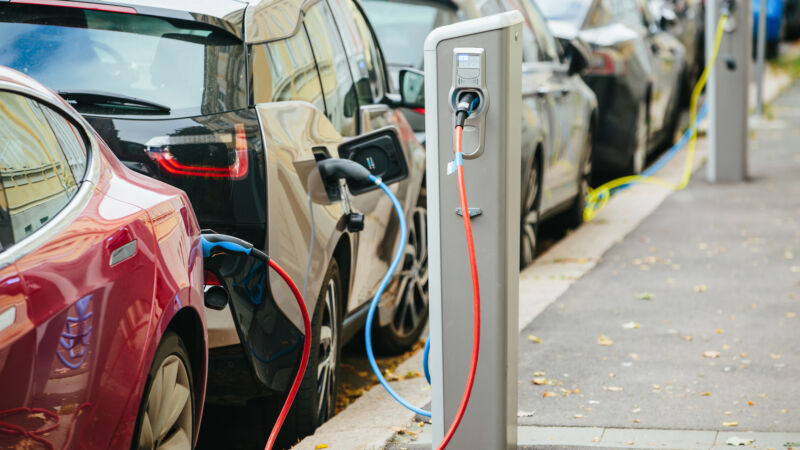A factor behind the additional interest in buying an EV may be the increased tax credits available for those who get behind the wheel of an EV in 2023.
A new Reuters news poll showing that more Americans are interested in purchasing an electric vehicle (EV) may be due in part to the increased tax credits for such purchases.
Reuters and Ipsos, a multinational market research and consulting firm, conducted a seven-day poll of just under 4,500 Americans that found 34% of all respondents would consider an EV purchase. For 2022, EV sales were up by more than 60% with a representation of just about 6% of all sales in the U.S.
Government agency projects more optimism in EV sales
Further solidifying increased interest in the EV market comes from a February 2023 U.S. Bureau of Labor and Statistics (BLS) publication that pointed to a S&P Global Mobility forecast stating that EV sales in the U.S. could reach 40% of total passenger car sales by 2030. More optimistic projections foresee electric vehicle sales surpassing 50% by 2030.
Increased EV tax credit
A factor behind the additional interest in buying an EV may be the increased tax credits available for those who get behind the wheel of an EV in 2023. The Inflation Reduction Act, signed into law in 2022, increased the tax credit for these purchases to $7,500, beginning this year. These credits are available through 2032 under Code Sec. 30D if the taxpayer buys a new, qualified plug-in EV or fuel electric cell vehicle (FCV).
Government action is “driving demand”
The BLS’s February 2023 “Beyond the Numbers” confirms that government action is “driving demand for electronic vehicles,” pointing back to the 2021 Infrastructure Investment and Jobs Act, which allocated $7.5 billion to building out a nationwide charging network. The publication specifically said that on the consumer end, “tax credits spur demand,” and cited the Inflation Reduction Act’s increased and extended tax credit for purchasing EVs that took effect this year.
Different motivations behind buying EVs
Melody Drummond Hansen, an IP & Technology Partner and mobility team lead at BakerHostetler law firm notes that “tax incentives for EVs certainly are a factor for some consumers” and explained that besides at the federal level, several states, including California, “are providing tax credits, rebates, and other incentives to help bring the overall ticket price below a threshold that encourages consumer adoption.” The Golden State offers a rebate of up to $7,000 to buy or lease certain EV vehicles.
However, Drummond Hansen added that “many consumers may not benefit from such incentives and are not solely motivated by them.” She attributed their “uptake” to “other factors including increased performance, sustainability and environmental benefits of EVs.” A 2021 Pew Research Center poll shows that 67% of respondents said that EVs are better for the environment.
EV tax credit qualifications
There are certain qualifications for the types of EVs that may be eligible for the increased tax credit, including the battery capacity, the weight of the car, and whether the vehicle was made by a qualified manufacturer with final vehicle assembly in North America.
In early February 2023, the U.S. Treasury Department updated its stance on what types of EVs may qualify for the $7,500 tax credit. As a result, more Tesla, Ford, General Motors, and Volkswagen EVs are eligible for the $7,500 maximum credit.
Claiming the EV credit
To claim the credit, taxpayers file Form 8936, Qualified Plug-in Electric Drive Motor Vehicle Credit (Including Qualified Two-Wheeled Plug-in Electric Vehicles) with their tax return. The IRS has further information explaining the increased EV credits for qualifying vehicles purchased in 2023.
Commercial clean vehicle credit
Another provision from the Inflation Reduction Act allows businesses and tax-exempt organizations that buy a qualified commercial clean vehicle may qualify for a nonrefundable clean vehicle tax credit of up to $40,000 under Code Sec. 45W. The maximum credit is $7,500 for qualified vehicles with gross vehicle weight ratings (GVWRs) of under 14,000 pounds and $40,000 for all other vehicles.
There is no limit on the number of credits a business can claim and a Code Sec. 45W credit can be carried over as a general business credit. According to the IRS website, the Service is still in the process of finalizing a form to claim this credit and asks businesses to check back for updates in the future.
Battery manufacturers awaiting more Treasury guidance
This week, the Treasury proposed new clean vehicle credit regs. Although this information relates to the sourcing requirements for EV battery tax subsidies, domestic battery manufacturers will want to pay attention as the Inflation Reduction Act additionally offers a $35 per kilowatt-hour tax credit for each U.S. made cell. This is found in Code Sec. 45X (Advanced Manufacturing Production Credit).
Lawmakers trying E-bike tax credit legislation again
Purchasing an EV may not be the only way consumers could benefit from a tax credit if the recently re-introduced Electric Bicycle Incentive Kickstart for the Environment (E-BIKE) Act makes it through Congress and is signed into law. The fully refundable credit would cover 30% of the cost of the electric bicycle, up to a $1,500 credit and apply to new electric bicycles that cost less than $8,000.
The bill would also double the income limits to receive the maximum credit (up to $150,000 for a single filer and $300,000 for joint filers), which matches the EV tax credits from the Inflation Reduction Act. A similar measure ended up not making the cut in last year’s $1.7 trillion funding bill.
For more information on the EV tax credit increase in 2023, including qualifications and how to claim the tax credit, start with Checkpoint’s Federal Tax Coordinator ¶L-18000.
Contact a Thomson Reuters representative to learn more about Checkpoint.






